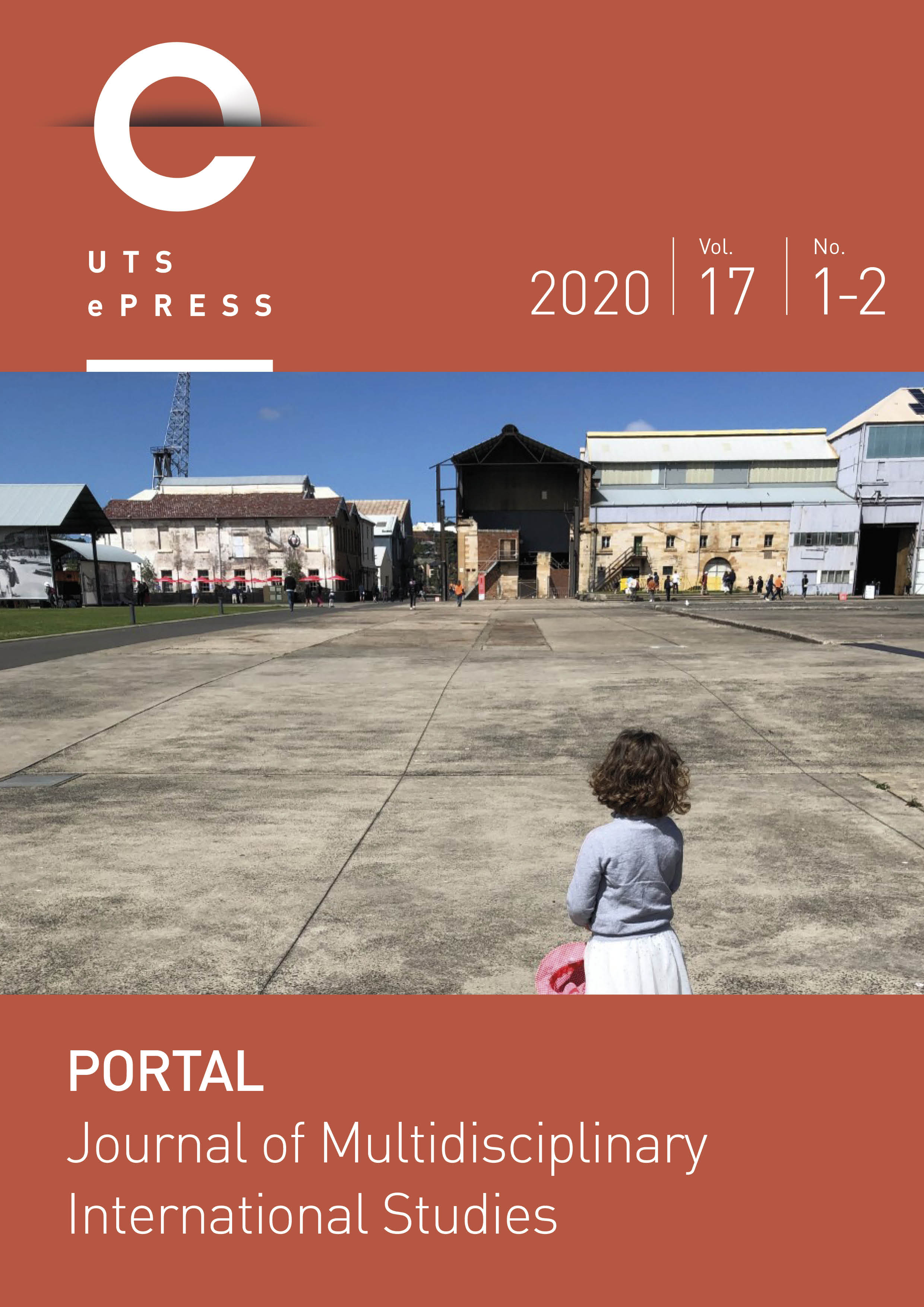Transnational Memory and the Fukushima Disaster: Memories of Japan in Australian Anti-nuclear Activism
Main Article Content
Abstract
This paper argues for the importance of transnational memories in framing Australian anti-nuclear activism after the Fukushima disaster. Japan looms large in the transnational nuclear imaginary. Commemorating Hiroshima as the site of the first wartime use of nuclear weapons has been a long-standing practice in the Australian anti-nuclear movement and the day has been linked to a variety of issues including weapons and uranium mining. As Australia began exporting uranium to Japan in the 1970s, Australia-Japan relations took on a new meaning for the Indigenous Traditional Owners from whose land uranium was extracted. After Fukushima, these complex transnational memories formed the basis for an orientation towards Japan by Indigenous land rights activists and for the anti-nuclear movement as a whole. This paper argues that despite tenuous organizational links between the two countries, transnational memories drove Australian anti-nuclear activists to seek connections with Japan after the Fukushima disaster. The mobilisation of these collective memories helps us to understand how transnational social movements evolve and how they construct globalisation from below in the Asia-Pacific region.fic region.
Article Details
Section
For submissions from 31st March 2014 onwards, authors who submit articles to this journal for publication agree to the following terms:
a) Retaining Copyright and Granting Rights:
Authors retain copyright and grant the journal the right of first publication. The work is simultaneously licensed under a Creative Commons Attribution License, allowing others to share and adapt the work. Acknowledgment of the work's authorship and initial publication in this journal is required.
b) Non-Exclusive Distribution:
Authors may enter into separate, additional contractual arrangements for the non-exclusive distribution of the journal's published version of the work (e.g., posting to an institutional repository or publishing in a book). Acknowledgment of its initial publication in this journal is required.
c) Online Posting and Citation Advantage:
Authors are encouraged to post their work online (e.g., in institutional repositories or on their website) prior to and during the submission process. This may lead to productive exchanges and earlier and greater citation of the published work (See The Open Access Citation Advantage Service). If authors include the work in an institutional repository or on their website, they must acknowledge the UTS ePRESS publication with relevant details.
d) Creative Commons Attribution (CC-BY) License Awareness:
Authors should note that the CC-BY License permits readers to share (copy and redistribute) and adapt (remix, transform, build upon) the work for any purpose, including commercial use. Proper credit, a link to the license, and indication of any changes made must be provided. The manner of doing so must not suggest endorsement by you or your publisher.
For Volume 10 No 2 (2013) and earlier, the following copyright applied:
Authors submitting a paper to UTSePress publications agree to assign a limited license to UTSePress if and when the manuscript is accepted for publication. This license allows UTSePress to publish the manuscript in a specific issue.
Articles published by UTSePress are protected by copyright, with rights retained by the authors, who assert their moral rights. Authors control translation and reproduction rights to their works published by UTSePress. All rights are reserved worldwide by UTSePress, and downloads of specific portions are permitted for personal use only, not commercial use or resale.
For reprint or usage permissions, please direct inquiries to UTSePress via the journal's main editor, Dr. Nicholas Manganas at [portal.scholarly.journal@gmail.com]. Reprint permission requires acknowledgment of both UTSePress and PORTAL in the format advised by the journal editor.
